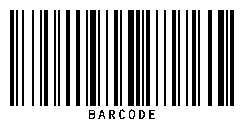Inside the dynamic field of welcome, bartenders engage in a crucial role in creating unforgettable experience for clients. However, above the skill of mixology and customer satisfaction, bartenders also needs to adhere to legal polices, making bartender license a basic element of their occupation. Here’s why bartender accreditation is essential in the hospitality business:
1. Making certain Agreement with Liquor Laws and regulations
Bartender certification helps to ensure that people providing alcohol are-versed in community and state alcohol legal guidelines. This data empowers bartenders to responsibly manage liquor revenue, prevent underage ingesting, and avoid providing drunk people, and thus lowering the potential risk of authorized liabilities for themselves and the organization.
2. Upholding Professional Specifications
Getting a bartender license displays a resolve for reliability and proficiency in liquor service. It shows that bartenders have gone through education to manage numerous conditions, from checking out IDs to controlling issues, with sincerity and professionalism, enhancing the trustworthiness of the organization.
3. Endorsing Public Security
Responsible liquor service is important in maintaining general public basic safety. Bartender accreditation equips bartenders with all the expertise to distinguish warning signs of intoxication and intercede appropriately to prevent alcoholic drinks-related occurrences such as driving while intoxicated incidents and altercations, encouraging a more secure consuming environment for patrons.
4. Enhancing Client Encounter
Effectively-trained and licensed bartenders contribute to a confident consumer practical experience by ensuring successful assistance, sustaining a inviting atmosphere, and prioritizing client safety and fulfillment. Licensed bartenders will probably manage customer questions and requests with certainty and reliability, enhancing all round visitor fulfillment.
5. Mitigating Threats for Organisations
For welcome establishments, making use of registered bartenders mitigates the potential risk of legitimate implications related to alcoholic beverages-connected incidents. By ensuring that their employees are properly trained and accredited, facilities illustrate their resolve for agreement and duty, lowering the probability of penalties, law suits, and harm to their standing.
6. Encouraging Career Progress
Bartender accreditation opens up doors to profession development possibilities throughout the hospitality sector. Certified bartenders tend to be desired prospects for managing placements, consulting roles, and opportunities in upscale institutions where adherence to legitimate rules and service specifications is paramount.
7. Bringing about Sector Integrity
By following bartender licensing demands, the welcome sector upholds its integrity and shows a commitment to responsible liquor services. This determination not only builds rely on with patrons and also fosters good relationships with regulatory organizations and also the wider neighborhood.
In simple terms, bartender certification is not only a legal obligation but a cornerstone of professionalism and reliability and accountable alcoholic beverages service within the welcome industry. By prioritizing education, compliance, and open public security, accredited bartenders give rise to a vibrant and reliable hospitality industry, in which clients can take advantage of memorable activities within a safe and inviting environment.


